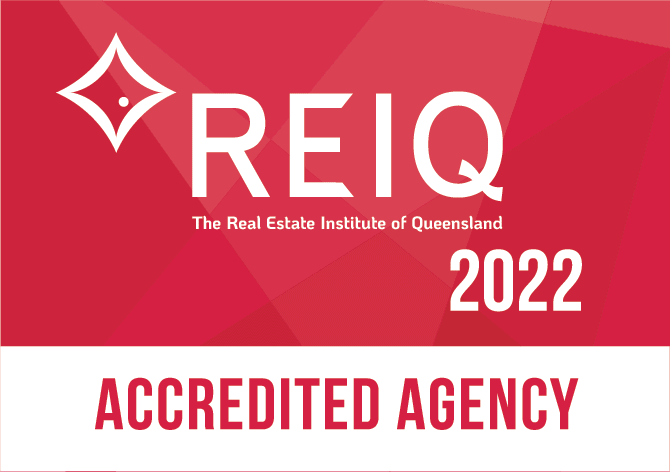Table of Contents
ToggleHow to Buy An Investment Property
What Do I Need to Know to Buy in Brisbane or Queensland?
If you’re anything like the Property Hound, choosing an investment property will be the most exciting thing that you will ever do! Whether you are doing it alone or want the assistance of a professional, here are some tips to get you started to buying that investment property of your dreams! So dust off the walking shoes; grab a clipboard; and start salivating – there will probably be some spreadsheets involved too!
1. What is your strategy to buy an investment property?
Some common investment strategies include:
- Buy and Hold: a long-term strategy to create wealth through capital gains.
- Renovate and Sell: a short-term investment to increase equity through capital improvements
- Negative Gearing: using taxation benefits to help subsidize the holding costs of an investment property, legally reducing your tax liabilities
- Positive Cash Flow: a medium to long term investment where the primary objective is to generate an income from a property via high rental returns
- Land Banking or Holding Property For Future Development: Creating wealth by developing (e.g. subdivision; building units or townhouses to make best use of the land); on-selling property to a developer; or holding for its potential for council re-zoning
Your investment strategy will affect the type of property you should look for.
For example:
- Older or newer properties
- Houses, units or vacant land
- Brisbane versus regional Queensland
2. What is your budget for buying that house or unit?
It can be frustrating to look for property when you are not sure how much you can afford. Talk to your bank or broker before you start looking. Give consideration to the following:
Purchase costs:
- Deposit monies:
- Will you be using cash? Equity from another property?; or will a third party be guarantor?
- How much deposit will you require? Will mortgage lenders insurance be payable if the deposit is <20%?
- Stamp duty:
- Stamp Duty can be a nasty surprise if you are not expecting it. Check current rate with the Office of State Revenue
- Obtain quotes for conveyancing, building and pest inspections, loan fees.
Type of loan:
- Should I use an interest only or principle and interest loan?
- Should I get a variable or fixed rate loan?
- Do I need “a safety net”; a loan account to provide funds for any unforeseen expenses
Holding costs:
How much money will you need to set aside each week to cover the holding costs? This is where your spreadsheet comes in! Now you’re excited!Be confident that you can afford the property before you commit. Make the following calculations:
Income:
- What rent will be achieved?
- What vacancy rate can I expect?
Expenses:
Loan repayments: How will this be affected by changes in interest rates?
What rental expenses can I anticipate?
- Management and letting fees
- Rates
- Body corporate
- Insurance
- Water
- Maintenance: what major works may be required
Tax deductions:
- Remember that rental expenses are generally tax deductible
- Near-new properties can have significant tax deductions because of depreciation of the building, fixtures and fittings.
- Include estimates of depreciation in your calculations.
- Are you used to getting a tax refund at the end of the financial year? Did you know that you could instead pay less tax from your wage each week? Simply prepare an Income Tax Withholding Variation – see the ATO website for more information.
Potential for Capital Growth:
Having worked out a strategy and established a budget it is time to lace-up the walking shoes and begin the search.
A property’s capital growth is largely related to the supply and demand of property in the area.
Ask the following questions:
- Will demand for this property increase over time? Consider:
- Is there population growth or decline?
- Are there plans for new infrastructure and development? Will this make the area more or less desirable?
- How does this property compare with others in the area? Is there the potential to add value?
- What is the future supply of housing in the area? Are new or re-developments planned?
4. What Rental Return will the Property Achieve?:
To achieve high rental returns not only do we need maximum weekly rents, but also minimum vacancy rates and tenant turn-over.
How desirable is the property to tenants?
- Location: proximity to diverse industries and employment centers; transport; shopping; restaurants; cafes; schools; universities; hospitals; sporting facilities.
- Property features: well presented; secure; quiet; off-street parking; good-sized rooms; ample storage.
- What is the projected demand for rental property in the area?
- Consider rental vacancy rates and the proportion of properties owned by homeowners versus investors.
5. How will this investment impact my cash flow?
Cash flow is a fundamental consideration to assess the viability of an investment. An ideal investment would achieve strong capital growth and rental returns with minimal out-of-pocket expenses.
The main determinants of cash flow include:
- Purchase price: Do not pay too much!
- Interest rate: What happens to my payments if rates rise 2%?
- Rental returns (This includes vacancy rates.)
- Rental expenses (Especially body corporate fees which vary widely.)
- Maintenance costs (These vary enormously with different types of property. Always have a building and pest inspection performed prior to purchase.)
- Tax deductions (Rental expenses and depreciation)
- The marginal tax rate of the investor
The spreadsheet is king in property investing!
6. How to negotiate the purchase price
Aim to inspect 100 properties in the area you intend to purchase in. This will give you a reasonable idea of property sales prices. Consider having a professional valuation performed. Work out a negotiation strategy and be prepared to justify your offer. Remember that however helpful they may seem, sales agents are working for the vendor to achieve a maximum sales price. Consider using a professional to negotiate on your behalf. You may be surprised about how much money you can save.
7. How to prepare for the the contract and settlement process:
- Building and contents insurance should be taken out by the purchaser once a contract is signed.
- A building and pest inspection is recommended for all properties. Choose a professional that you trust.
- Nominate a solicitor to perform conveyancing on your behalf.
- If the contract will be subject finance ask your bank or broker how long finance approval is likely to take. It is generally 14-21 days but can vary widely.
- Do you require any other special conditions?
- A deposit is generally paid after signing the contract. Consider how much will be required; when it needs to be paid; and how you will access the money.
- A pre-settlement inspection should be scheduled
8. What risks are the risks involved in purchasing an investment property?
There are risks involved with all investment types and strategies. Fortunately there are ways to manage this risks when investing in property.
Below are some possible risks and strategies to manage them:
Damage or destruction of the property caused by flood, fire, storm, pests, building defects or other causes.
- Have building and pest inspections performed pre-purchase, and annually thereafter.
- Having building and contents insurance and be aware of any exclusions
- Check flood maps and enquire about whether flood insurance is available pre-purchase.
Bad tenants causing malicious damage, loss of rent or refusing to leave
- Use a professional agent to screen tenants thoroughly and to manage any tenancy disputes.
- Take out ‘Landlord Protection Insurance’ which will provide cover for any malicious damage and loss of rent caused by the tenants
Rising Interest rates
Consider using a fixed rate loan. This can buy you breathing space until rates come down again, or you plan an exit strategy.
Falling house prices
The residential property market in Australia has been remarkably resilient in some tough economic times. Nonetheless falling house prices have occurred in some areas.
The best insurance against falling house prices is to:
- View property investment as a long term strategy and understand that prices may fluctuate as part of normal growth cycles.
- Select individual properties based on quality research/due-diligence
- Make sure that you don’t pay too much.
Good luck in your search for buying a good investment property!
If you would like more information or assistance selecting the right investment property, then Your Property Hound is here to help. Contact us today for an obligation free consultation to find out whether the service of our buyer’s agent is right for you. Our enthusiasm for property is infectious. I can’t wait to show you our spreadsheet!

